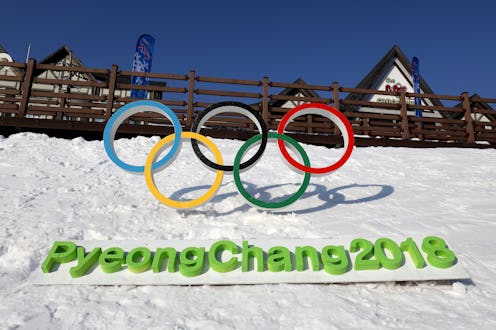News
Russia's Punishment For Olympic Doping Is So Brutal It's Never Been Done Before

Following an investigation into doping in its top-level athletics programs, the International Olympic Committee, or IOC, has banned Russia from the 2018 Winter Olympics, in an announcement made on Tuesday. The news means that no Russian athletes in Winter Olympic events will be able to represent their country in Pyeongchang, South Korea next year. Any Russian athletes who still qualify to attend will be forced to wear neutral uniforms, and the playing of their country's national anthem will be replaced by the Olympic anthem.
According to The New York Times, this is an unprecedented punishment in Olympic history, more forceful by far than the sanctions doled out in 2016, which saw multiple Russian athletes banned, but no blanket ban on the Russian National Olympic Committee altogether. It's the culmination of a doping investigation that dates back to the 2014 Olympics in Sochi, when the Russian Olympic program was accused of tampering with urine samples to conceal their athletes' use of performance-enhancing drugs.
In a statement, IOC president Thomas Bach described the punishment as a response to an "unprecedented attack on the integrity of the Olympic Games and sport."
As an athlete myself, I feel very sorry for all the clean athletes from all NOCs who are suffering from this manipulation. Working with the IOC Athletes' Commission, we will now look for opportunities to make up for the moments they have missed on the finish line or on the podium.
However, the IOC's ban statement identifies an avenue for Russian athletes who are clean and free from performance-enhancing drugs to be able to compete next year, albeit not under the flag of their home country. These Russian competitors won't be able to wear traditional uniforms with their country's name or abbreviation on it, but will instead wear ones designating them an "Olympic Athlete from Russia."
In other words, if a Russian athlete at the 2018 games wins a medal, they'll receive it wearing an Olympic flag on their uniform, while the Olympic anthem plays in the background. Russia's involvement as a national team will not be acknowledged, and it will officially receive zero medals for the year regardless of the performance of its individual athletes.
The two-part McLaren report — led by Canadian sports law professor Richard McLaren — was released in July and December 2016, drawing international headlines. The result of exhaustive investigation into Russia's long-alleged Olympic doping operation, the report concluded that more than 1,000 Russian athletes had been implicated.
The report's various findings led critics and observers to suggest the IOC ought to ban Russia in much the fashion it now has, although it's nonetheless left a path open for clean Russian athletes to get to compete. In addition to the allegations of doping that swirled around the 2014 games in Sochi ― the first time Russia had hosted the Olympics since the 1980 games in Moscow ― the McLaren report found that the Russian Olympic team had "corrupted the London Games 2012 on an unprecedented scale, the extent of which will probably never be fully established."
In the years following the 2014 games, and leading up to the announcement of the ban, the IOC has gradually stripped away more and more medals recently won by members of the Russian team. In fact, despite the fact that Russia finished first in the count in 2014 with a whopping 33 medals, it now has just 22 of them still in the record books. As a result, the United States now leads the Sochi medal race with 28, and Russia won't even get to compete next year.